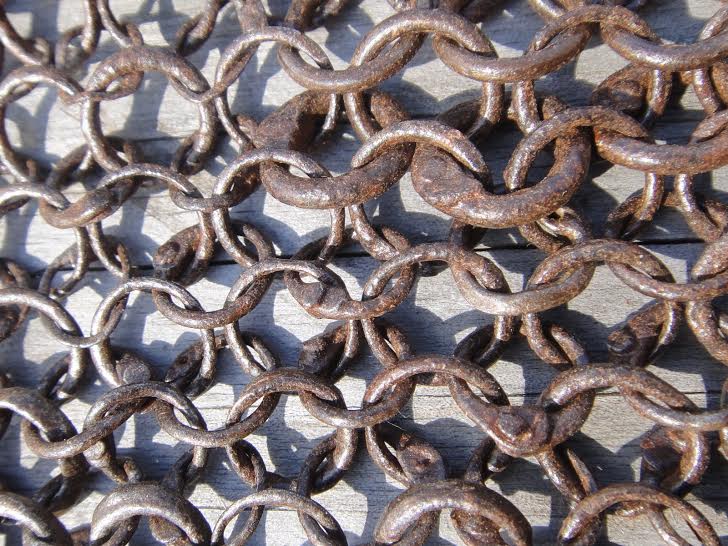Typical indo-persian looks like that.
If you take these rings that have a nice overlap and smooth shape would that differ much from this "russian" bechter rings?
Here is a detail of another "mess". Bechter with bikaneer text.


| Peter Mustonen wrote: |
| I agree.
Typical indo-persian looks like that. If you take these rings that have a nice overlap and smooth shape would that differ much from this "russian" bechter rings? Here is a detail of another "mess". Bechter with bikaneer text. |
| Peter Mustonen wrote: |
| I agree.
Typical indo-persian looks like that. If you take these rings that have a nice overlap and smooth shape would that differ much from this "russian" bechter rings? Here is a detail of another "mess". Bechter with bikaneer text. |
| Peter Mustonen wrote: |
| Yes they are identical in most way. Bechter rings identical to your indian |
| Peter Mustonen wrote: |
| Yes In fact you are absolutely right Eric.
I guess it was most Ottoman feature to have hexa solid rings. Here is one smaller piece of mail that looks having the same hexa form but cant really find out the riveting. |
| Quote: |
| The bigger rings here in Ottoman Kolzak are very much the same as you posted. This kolzak seem to have its original form of mail attached to it. |
| Quote: |
| One more slice of mail I suppose is Indian but very small rings similar in size like european single sleeves. |
| Mart Shearer wrote: |
| Eric,
Why do you think Indian solid rings have this faceted appearance? We know that some (if not all) theta-links were forge welded. I wonder if these aren't made from a band which is welded closed, much like the construction of a wedding ring. The section often seems more vertically oriented on these faceted Indian rings. |
| Peter Mustonen wrote: |
| Yes Eric here we disagree in one piece of separate mail made from solid and riveted links. I was first thinking this is european early piece of mail but then again solid rings look to be somewhat hexa in form. This could happen by the wear also. So it might be European after all. But I was not thinking it is Indian. More likely Mamluk or safavid.
Eric I know where the rivets are in worn rings, I just wanted to say that I was not able to determine how the rivets are looking after everything is so soft rounded. Anyway this is very ineresting for everybody to see and learn about the mail with good pointing. I have to say you guys are awesome. Let see what more we can find out. |
| Peter Mustonen wrote: |
| Eric.
Now i got it. Maybe you are right. Maybe this bechter with bikaneer engraveing is really easten originally. There is only one strong sided ring in the whole shirt. Are you sure all the indian solid rings were just of that type very strong sided? Very good point if that is the case. |
| Quote: |
| The armor is part of a large group of material that comes from the armory of the maharajas of Bikaner in Rajastan, northern India. An inscription inside one of the plates gives the name of Maharaja Anup Singh (reigned 1669–98) and the date samvat 1774 (A.D. 1691). Anup Singh was a general in the armies of the Mughal emperor Aurangzeb and led a series of campaigns in the Deccan in the 1680s and 1690s, including battles at Golconda in 1687 and Adoni in 1689. The date on the armor indicates that it must have been taken as booty during one of the Deccan campaigns. |
| Peter Mustonen wrote: |
| Eric. Here is some additional images hope they reveal something. Light was very bad today for taking pictures.
r. Ptr |